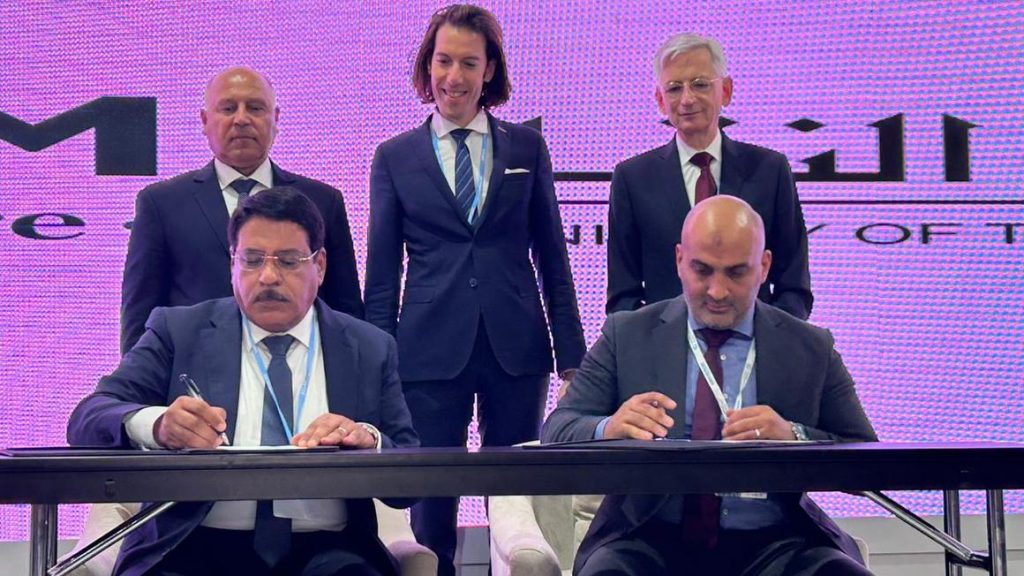 National Authority of Tunnels (NAT) and Alstom signed a framework agreement to design, build and maintain the Cairo Metro line 6. The agreement was signed at the COP 27 held from 6 November until 18 November 2022 in Sharm El Sheikh, Egypt.
National Authority of Tunnels (NAT) and Alstom signed a framework agreement to design, build and maintain the Cairo Metro line 6. The agreement was signed at the COP 27 held from 6 November until 18 November 2022 in Sharm El Sheikh, Egypt.
Alstom will provide the rolling stock comprising Metropolis trains, with the interior layout to be tailored to specific customer requirements and designed to maximise the train’s capacity while improving passenger comfort, accessibility and circulation.
At peak times, each train will be able to carry 2,580 passengers and its eco-design will improve energy efficiency and will be 98% recyclable.
Alstom will be also in charge of signalling systems, infrastructure, telecom systems, traction, power supply, high voltage substation, depot equipment, design of the depot, trackwork, third rail and automatic fare collection.
Alstom will be also responsible for the maintenance work on Cairo Line 6 will be carried out at the depot in Cairo and managed locally, creating long-term job opportunities for local talent. Additional localisation beyond maintenance will open new opportunities for Egyptians to participate in the industry growth.
“Alstom is further committed to localise a significant portion of the Cairo metro line 6 project, aligned with Egypt’s 2030 vision and sustainable development goals,” Andrew DeLeone the President of Alstom in Africa, Middle East, and Central Asia said.
Cairo Metro line 6 will be the first driverless metro in Africa. The line will be 35 km long running north-south through the Greater Cairo neighbourhoods of Shubra El-Kheima and New Maadi, ending at the beginning of Ain El-Sokhna Road, Al-Khosos. The project will also include 26 stations, 12 of which will be located underground.
The project is part of Egypt’s plans to increase and improve public transport capacity and passenger experience for citizens and will reduce the congestion on Cairo Metro Line 1 while it will provide more options to residents moving across Cairo. The line will be used by 1.5 million passengers.
Share on:



